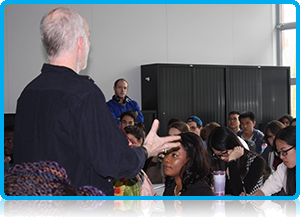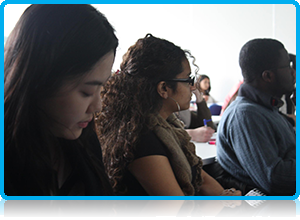Wittenborg Online News!
International Management Master Programmes - to internationalise or not to internationalise?
International Management Master Programmes - to internationalise or not to internationalise?

International Management Master Programmes - to internationalise or not to internationalise?
Internationalism, internationalisation, international content - is the word ‘international' outdated? During a recent accreditation visit to Wittenborg by a panel of experts, for a new Master (MBA) programme, a debate was initiated regarding the use of the word ‘international’ in the title of the proposed programme.
On the one hand, from a marketing perspective, the word ‘international’ is used to mark the programme’s intention to serve an international market of both students and employers, on the other hand the panel questioned the descriptive quality of the modules in relation to ‘international’. An MBA is naturally ‘international’ it argued, therefore having the name in the title was misleading, however in possible contradiction to this, they argued that there should be more clear use of the keyword ‘international’ in the aims and objectives of modules and the final qualifications. Although they essentially believed that the programme is fully international in its 'make-up', this isn't explicitly worded in the aims and objectives.

The word ‘international’ is used often in International management Programmes. Wittenborg, for instance offers its Bachelor programmes under the umbrella title International Business Administration, and it offers the Master International Hospitality Management, the Master International Events Management and the Master International Tourism Management.
Wittenborg University's Bachelor International Business Administration, offered in 10 different pathways ranging from Marketing & Communication to Hospitality Management and from Economics & Management to Logistics & International Trade, has a target audience of both students from around the world to students from the Netherlands.

The same sorts of motivated, English speaking students are intended to be targeted for the MBA programme, from around the world and from Holland itself. The aim is to create an international MBA classroom that will in itself form the basis for an international MBA experience in which the curriculum is subjected to the views and ideas from around the world, in the reflective learning of the students, preparing them to enhance their careers either at home or abroad.
Clearly, it was argued, that ‘internationalism’ is not ‘international’ - a diverse and international body of students, an international teaching team and a curriculum written by people from around the world does not lead to an ‘international programme’. Internationalism is itself not international.
 Interculturalism was also subject to debate - intercultural aspects must be specifically taught, even in an environment of the international classroom. Just expecting that a mix of students from 5 continents, representing more than 20 nationalities will in itself lead to intercultural aspects being dealt with is a misunderstanding. Of course this is strongly counter-debated by Wittenborg’s teachers who experience the international classroom, which they say is rich with intercultural flavour and understanding and learning and which leads to a full international perspective on the material in question being read, or discussed or being examined.
Interculturalism was also subject to debate - intercultural aspects must be specifically taught, even in an environment of the international classroom. Just expecting that a mix of students from 5 continents, representing more than 20 nationalities will in itself lead to intercultural aspects being dealt with is a misunderstanding. Of course this is strongly counter-debated by Wittenborg’s teachers who experience the international classroom, which they say is rich with intercultural flavour and understanding and learning and which leads to a full international perspective on the material in question being read, or discussed or being examined.
A conundrum thus, 'to be international or not to be international?' The unanswered question arose - if the programme is not 'international' what makes it so 'national'?
In these modern times, the Asian, European, African and even American cultures inter grating at a pace that Universities can ill-afford to be focused on national curriculums taught for national students by national teachers, maybe it's time to drop the word 'international' in our programme descriptions altogether!
James Wittenborg
WUP 26/4/2014
©Wittenborg University Press
557 words